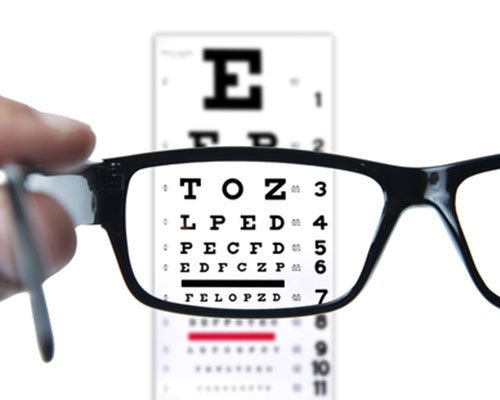Your eyes add extra depth to your daily experience. Simply put, they are one of your most important assets.

And caring for them is the key to preventing loss of vision as you grow older. If you do nothing else, do this: Put these four important steps in your eye care plan.
See your eye doctor regularly.
A study from the Centers for Disease Control shows that about 40 percent of adults 40 years of age and older who have moderate to severe vision problems do not seek eye care because of the high cost or lack of medical care. Another 35% skipped eye care because they feel you don't need it. But serious eye diseases, such as glaucoma, diabetes mellitus, and macular degeneration, usually have no warning signs. This is where an eye examination can help you identify the problem early, which may save your vision or diagnose the underlying health problem.
Always protect your eyes.
Whether you are shopping outdoors or hiking on a hiking trail, it is wise to wear a head covering and keep an eye on the sun's rays. Regardless of the time of day — or season — UV rays can cause eye damage and can lead to macular degeneration. Folding sunglasses offer the best protection, and you do not have to break the bank with a good pair. Make sure they block 99 to 100% of UVA and UVB rays. Protective eyewear, such as safety goggles and mirrors, is also a wise investment — especially when you play sports, do yard work, or do other chores. Computer and phone screens also hurt your peers. To reduce digital eyestrain, apply the 20-20-20 rule: Every 20 minutes, concentrate on a 20-meter object for 20 seconds.
Look at your whole life. Do you eat well and exercise regularly? Are you looking at your weight? Your whole life affects your vision. Says Michael Roizen, MD, "People who walk at least three times a week are less likely to develop advanced macular degeneration." If you smoke — stop. Smoking is as harmful to your eyes as it is to your entire body, increasing the risk of macular degeneration, cataracts, nerve damage, and blindness. Grease your body with a variety of good foods, and — especially fruits and vegetables. Oranges, apricots, carrots, spinach, and kale contain nutrients that help prevent eye diseases. In addition, eating a lot of omega-3 fats — such as those found in fish — gives you a 30% greater chance of keeping your vision healthy and strong, says Roizen.
Ignore your symptoms. Some eye symptoms are more frustrating than they are. Stinging, red eyes may indicate that you have a red-eye or dry eye disease. Or your eyes may be tired. But other eye symptoms, such as blurred vision that lasted more than a few days, may indicate serious or chronic eye problems. No matter what your symptoms are, do not ignore them. Schedule a visit with your optometrist to find out what causes them.